Opinion Pieces
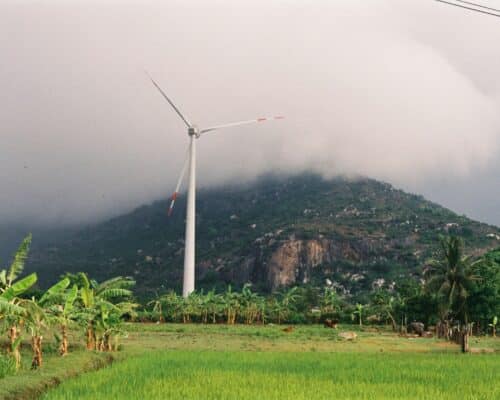
Redefining Energy Security in Southeast Asia: Renewables, Not Fossil Gas, Are Key to Net Zero [Op-Ed]
As geopolitical tensions and economic uncertainties intensify, it is becoming increasingly clear that overreliance on external energy sources poses significant risks to Southeast Asia’s economies and the well-being of its communities. The region must redefine energy security to achieve sustainable growth, climate resilience and energy security, with electrification, domestic renewables and stronger regional cooperation at its core.

When Emission Cuts Are Just Paperwork – The Cookstove Credits Backed by Korean Companies [Op-Ed]
Major Korean companies, including Samsung and SK Group, are backing carbon offset projects that significantly overstate their emission reductions—by an average factor of 18.3. This widespread over-crediting not only undermines global climate efforts but risks turning corporate ESG pledges into nothing more than greenwashing.
What’s Next for Southeast Asia’s China-backed Solar Boom?
Despite Southeast Asia’s significant solar potential, regional barriers such as regulatory hurdles, entrenched fossil fuel interests, and supply chain limitations are slowing progress. Experts emphasise the need for market diversification and deeper involvement across the solar value chain to unlock long-term growth and competitiveness in the face of rising regional rivals.
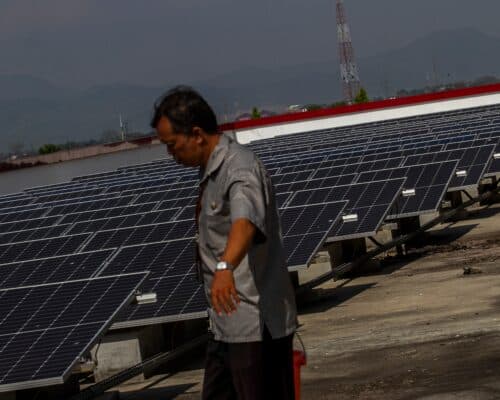
Implementing Wealth Taxes to Fund an Equitable Energy Transition in Indonesia [Op-Ed]
Indonesia's recent budget cuts under the Prabowo regime threaten to undermine the country's energy transition and climate commitments. With the Ministry of Energy and Mineral Resources facing a significant budget reduction, a strategic wealth tax on the super-rich could provide the necessary funding to support decarbonisation efforts and ensure a more equitable transition to sustainable energy.
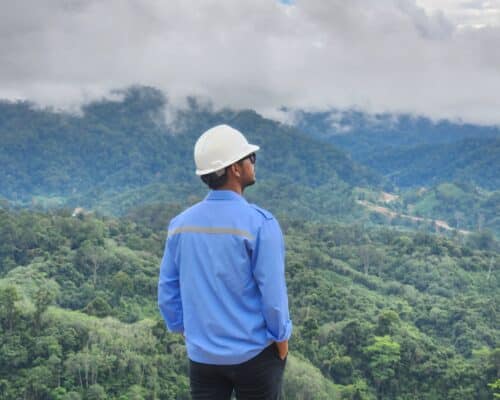
Inter-ministerial Collaboration Essential in Actualising Indonesia’s Green Jobs Potential [Op-Ed]
The transition from fossil fuels to renewable energy presents a significant opportunity for Indonesia to create green jobs, with estimates suggesting the potential for approximately 1.12 million new engineering roles by 2050. However, a lack of integration between energy transition policies, labour market development and inadequate training resources poses challenges.

Captive Coal Power Plants Holding Back Indonesia’s Energy Transition [Op-Ed]
Despite Indonesia's goal to add 75 gigawatts of renewable energy by 2039, the country is paradoxically increasing its captive coal-fired power plants, largely due to the nickel industry. This trend undermines efforts to reduce greenhouse gas emissions, potentially escalating pollution by 2030. While neighbours like Australia, India, and China advance in renewable energy, Indonesia's coal dependency highlights the urgent need for stronger policies and a commitment to phasing out coal power.

Cambodia’s LNG Plans Face Energy Security and Cost Issues [Op-Ed]
Christopher Doleman and Sam Reynold from the Institute for Energy Economics and Financial Analysis (IEEFA) share their views on Cambodia's risky LNG plans.
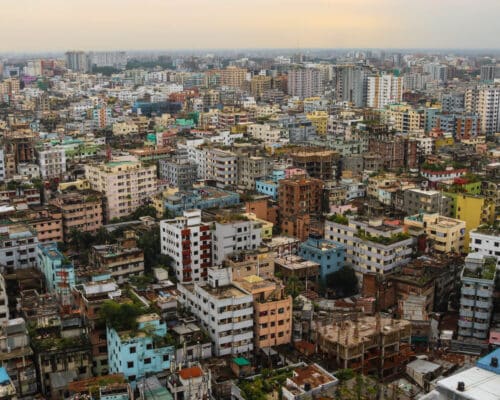
Japan’s Fossil Fuel Strategy Fueling Poverty in Bangladesh [Op-Ed]
Despite a severe foreign currency crisis, Bangladesh continues to pour billions into expensive, import-dependent fossil fuel projects—largely driven by Japan’s investments. While power plants remain idle due to fuel shortages, the burden of rising energy costs is pushing millions into poverty. Why is Bangladesh prioritising Japan’s energy agenda over its long-term sustainability?

Japan’s LNG Investments in the US Gulf South: A Costly Miscalculation [Op-Ed]
As Japan positions itself as a clean energy leader, its financial institutions are making a costly miscalculation—doubling down on US liquefied natural gas (LNG) investments. New research shows that exported LNG is 33% worse for the climate than coal, while frontline communities in the US Gulf South suffer severe health impacts from these projects. With mounting legal challenges, rising financial risks, and intensifying global climate commitments, Japan’s banks must reconsider their LNG strategy before it’s too late. Manning Rollerson & Ayumi Fukakusa share their opinion.
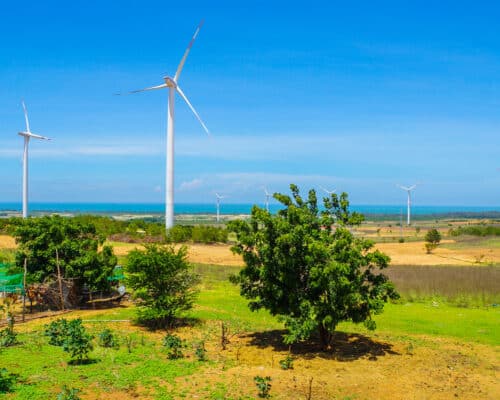
RE-powering ASEAN: Readying Power Systems for Renewables [Op-Ed]
Contractual reforms and targeted measures to accelerate investments in renewables are key to unlocking ASEAN's potential for a clean energy future. This piece explores strategies to overcome barriers and drive a sustainable, affordable energy transition in the region.

Indonesia’s Plan to Retire Coal Plants ‘Challenging’ [Op-Ed]
Indonesian President Prabowo Subianto's ambitious plan to phase out coal power plants within 15 years is a pivotal step toward achieving net-zero emissions by 2050. Analysts highlight that while challenging, this goal is achievable with clear policies, robust investments, international support, and rapid deployment of renewable energy technologies. With coal accounting for 60% of Indonesia's emissions, the transition to renewables and the integration of battery storage will be essential for the nation to meet global climate targets and align with the 1.5°C pathway.
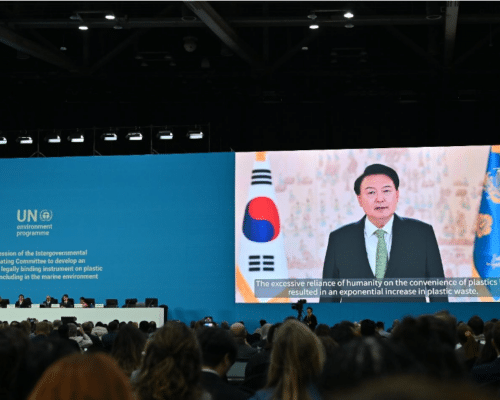
Beyond Busan – Will the Prolonged Push to Secure a Global Plastic Treaty Help Combat the Disposable Cups Crisis in South Korea?
The recent INC-5 negotiations in Busan spotlighted the urgent need to tackle plastic pollution globally, with a focus on reducing single-use plastics like disposable coffee cups, which contribute significantly to waste in South Korea and beyond. While the treaty negotiations ended without a binding agreement, discussions highlighted innovative reuse solutions, such as rental cup systems and “Bring Your Own Container” initiatives, as promising pathways to transition from a linear to a circular economy. As the world’s fourth-largest petrochemical producer, South Korea has a critical role in aligning government, business, and citizen efforts to curb unsustainable plastic use ahead of the next round of talks in 2024.
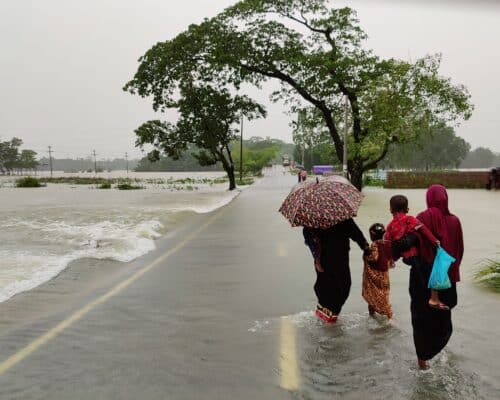
Bangladesh Sinks in Crisis Acting on Japan’s Fossil-fuel-based Master Plans [Op-Ed]
Japan's fossil fuel-driven energy plans have left Bangladesh with skyrocketing costs, mounting debt, and doubled carbon emissions. Experts call for revising the IEPMP to prioritise renewables and align with the Mujib Climate Prosperity Plan for a sustainable future.

Coal is Dirtier Than You Think: The Hidden Methane Risk [Op-Ed]
Coal mine methane is an overlooked source of emissions. Dr Sabina Assan, a methane analyst at global energy think tank Ember, shares her views on how, with proven technologies, half of the methane emitted by coal mines in Asia can be tackled.
Most Popular
Categories
-
10
-
35
-
126
-
4
-
17
-
46
-
52
-
11
-
10
-
15
-
24
-
6
-
1
-
5
-
6
-
284
-
200
-
17
-
24
-
1
-
1
-
23
-
41
-
44
-
88
-
18
-
86
-
41
-
17
-
11
-
43
-
54
-
86
-
299
-
22
-
44
-
36
-
11
-
42
-
36

